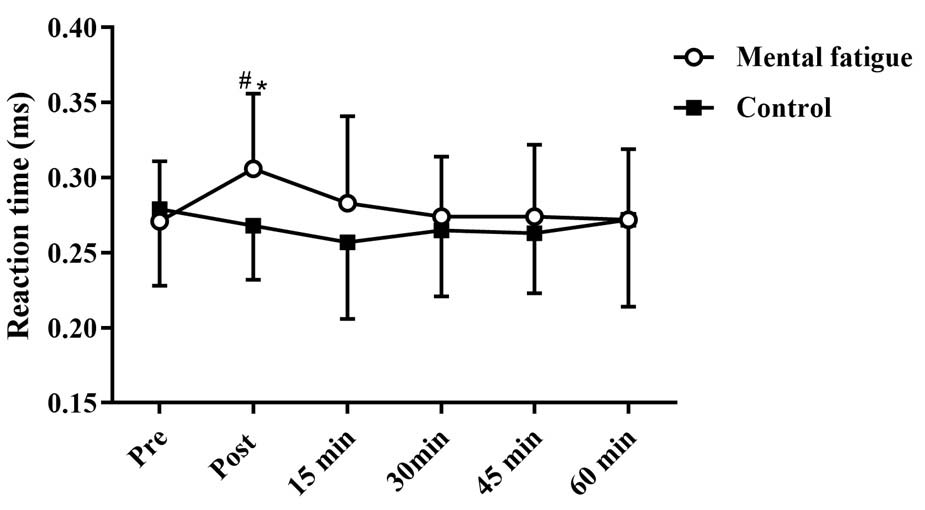Residual Effects of Mental Fatigue on Subjective Fatigue, Reaction Time and Cardiac Responses
Palabras clave:
Cognitive fatigue, Cognitive exertion, Exertion psychological, Cardiac autonomic activityResumen
This study investigated the residual effects of mental fatigue induced by the 30-minute incongruent Stroop Color Word task on subjectively perceived fatigue, reaction time, and heart rate variability (HRV) in 20 adult volunteers (10 men; 10 women). Dependent variables were assessed before, immediately after, and at 15, 30, 45, and 60 minutes after two conditions: (a) a 30-minute incongruent Stroop Color Word task (mental fatigue condition); or (b) a 30-minute control condition. At pre-testing, there were no significant differences between experimental conditions for any variable. However, there was a residual effect of mental fatigue on psychological responses for up to ~15 minutes after the experimental manipulation (p < 0.01). For the reaction time task, significant differences were observed only immediately after the mental fatigue, compared to the control condition (p < 0.0001). There were no significant differences between experimental conditions for any parameters of HRV at any testing period. In addition, there were no significant gender related differences at any period or in either condition for any variable. The data suggest that mental fatigue can alter psychological responses for up to ~15 min after its induction, and mental fatigue may impair cognitive reaction time performance without changing autonomic cardiac responses.



